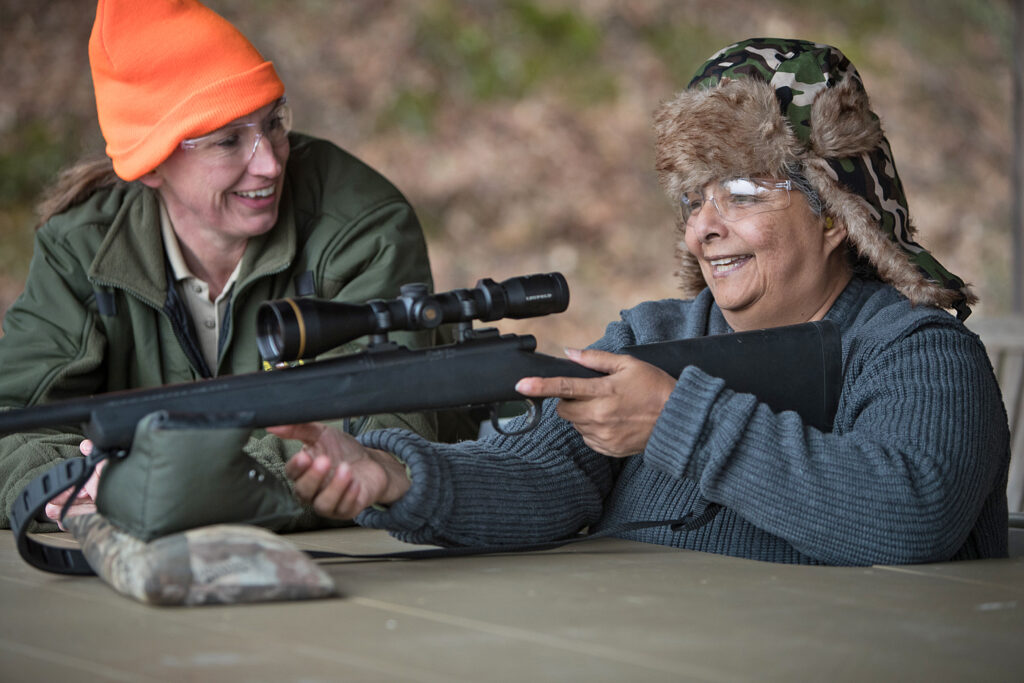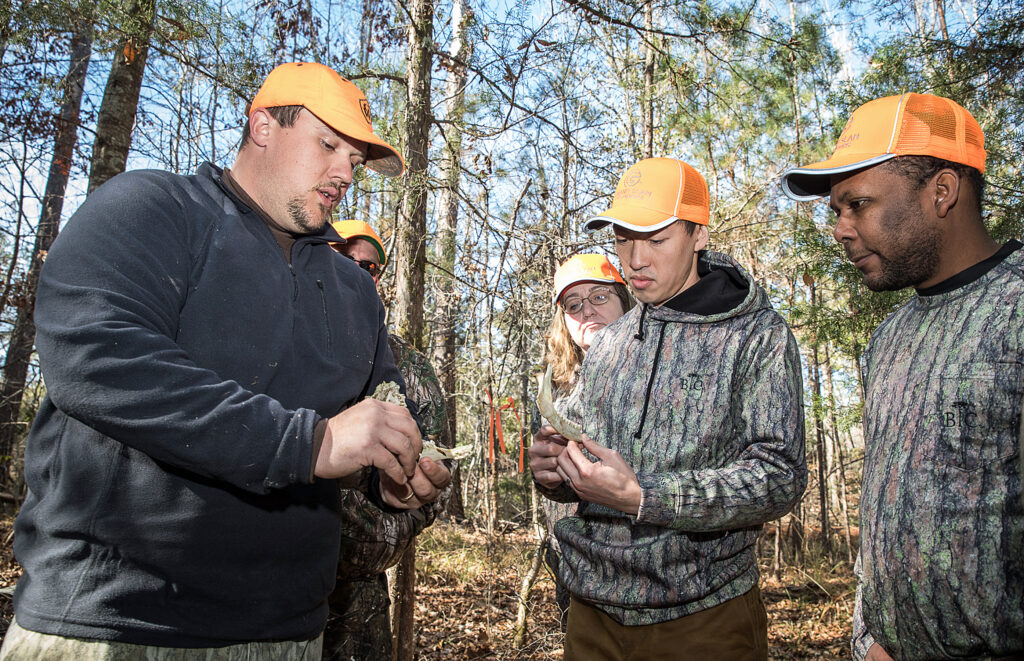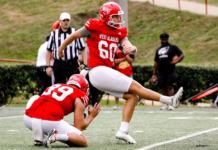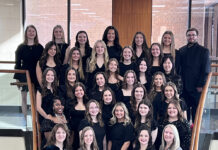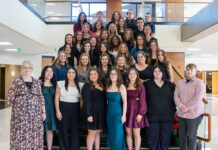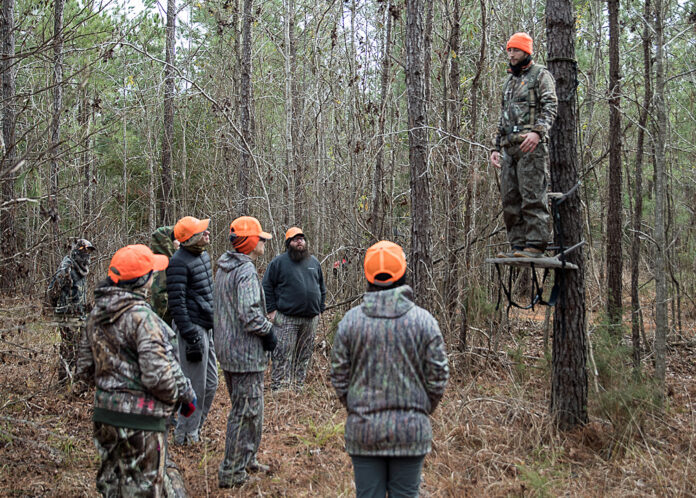
David Rainer, Alabama Department of Conservation and Natural Resources
With the social distancing requirements from COVID-19, many people have turned to the outdoors to escape the impact of the lockdowns.
The number of people fishing and hunting for a variety of game species has seen a boost, and Justin Grider wants to see that trend continue. Grider was recently named the Alabama Wildlife and Freshwater Fisheries (WFF) Division’s R3 Coordinator.
R3 is a national program that addresses ways to boost hunting and fishing participation – Recruit, Retain, Reactivate.
“The overarching view of R3 is that we want to reverse the decline in hunting and fishing license sales that’s been happening for several decades,” Grider said. “The average age of a license buyer in the state of Alabama is the late 50s, and once they turn 65 they don’t have to buy a license.
“We have to do something to change that trend. We not only want to revamp what we’re doing, we want to get everybody on the same page Division-wide. We want to streamline existing programs and then create new, innovative programs that will allow us to reach more people and give us a bigger footprint. We also want to reach new audiences, not only the ones we’re already in contact with.”
Grider, WFF staff and the Communications and Marketing Section of the Alabama Department of Conservation and Natural Resources (ADCNR) are working on an R3 training video (I Am R3) to educate Department personnel.
“We want everybody in the Department to know what R3 is,” Grider said. “We want them to know the problems we are facing as an agency in that our funding model is tied to license sales. We need people to understand the importance of reversing downward sales trajectories.”
Grider said the campaign will include having more outdoors-oriented events led by WFF staff as well as training volunteers so the volunteers will be able to host the events by themselves.
“We want to increase opportunities for people to learn and get involved,” he said.
Outreach is a significant aspect of the R3 effort. A little over a year ago, Conservation Commissioner Chris Blankenship revamped the makeup and mission of the old Information and Education Section into the new Marketing and Communications Section and tasked Section Chief Billy Pope to find ways to expose the public to the benefits of outdoor recreation, including hunting and fishing.
“It’s exciting that we are in a position to expand our marketing efforts with Billy Pope and his staff,” Grider said. “My hat’s off to Commissioner Blankenship and Billy Pope for their willingness to try innovative ideas and new approaches in how we are promoting our programs, promoting our license sales and encouraging people to utilize public lands and water bodies. We’re encouraging people to get outside to hunt, fish and get to the shooting ranges.
“That’s not something we have done in the past as a Department. But this is a national trend in the last couple of years and especially during the pandemic; state agencies are starting to realize the role marketing can play in helping reverse downward trends in participation.”
Although the white-tailed deer season has closed for now, Grider said the outreach will highlight the upcoming turkey season, which opens on March 20, and the abundant fishing opportunities in the spring. The campaign will continue into the summer and fall with dove season, archery season and the rifle deer season.
During the COVID pandemic, Alabama has seen a significant increase in all outdoors activities. Hiking, biking, wildlife viewing and other activities have increased as well as hunting and fishing, which can be tracked through license sales.
“We have been very fortunate to see a surge in fishing, especially, but also in resident hunting licenses,” Grider said. “The goal is to retain those new license buyers. These outreach efforts we’re putting in place are so we can retain those folks who got outdoors because of the pandemic. Because of the restrictions, people had more time on their hands and were able to get outside. We want to do whatever we can to retain that new audience.”
Grider understands that when some of the COVID-19 restrictions are lifted, the forces that caused the decline in outdoors activities will again be in play.
“We’ll be competing for time again as things get back to normal, as normal as it can be,” he said. “As we get back to where folks are working more and kids are involved in extracurricular activities, we will be dealing with what we faced before the pandemic.
“I feel like if we can get out in front before their plates get full again and they see the benefits of getting outside, they see the benefits of hunting and fishing, then those outdoors activities, like hunting, fishing and target shooting, will maintain relevancy and continue to be a priority.”
Grider said the new efforts will focus on spring and summer as well as continuing the outreach that occurs during hunting seasons with the Adult Mentored Hunting Program (AMH), the Special Opportunity Area (SOA) hunts and opportunities on our Wildlife Management Areas.
“We want to keep people engaged throughout the year, not just during hunting season,” he said. “That’s where fishing events come into play. That’s where shooting events come into play. This will help us stay relevant throughout the year.
“As for recruitment, we’re looking for new audiences. There is a lot of interest in learning how to fish and hunt in major metropolitan areas. In our marketing efforts, we will encourage those people to participate, whether it is the Adult Mentored Hunting Program, the new ‘Go Fish Alabama!’ program or getting to one of our events at one of our shooting ranges.”
The retainment aspect of the R3 program will encourage existing hunters, anglers and target shooters to take advantage of the outreach events and to volunteer to teach the newcomers the skills needed to enjoy outdoors activities.
“There are really good hunters, really good anglers and shooters who want to get involved by teaching,” Grider said. “We’ll use those folks as mentors. We’re seeing that already within the Adult Mentored Hunting Program. Folks in that program three or four years ago are coming back to serve as mentors.”
Reactivation efforts will reach out to those who have hunted or fished in the past but those activities have lapsed for whatever reason.
“Some of the folks who got back out during the pandemic were some of those people who had lapsed or had not purchased a license for several years,” Grider said. “They may have grown up in the outdoors or dabbled in it as an adult and just got busy with other priorities in life. When the pandemic offered them spare time, they were able to get back involved in the outdoors.
“Some of the reactivation efforts are tied to recruiting as well. We think there are people in metropolitan areas who haven’t participated in R3-type activities in five, 10 or 15 years. They may have moved from rural areas where they grew up to metropolitan areas where they can’t go hunting, fishing or target shooting as easily. We want to educate the public about the great hunting, fishing and shooting opportunities in or near the major metropolitan areas all over the state.”
Grider said WFF Director Chuck Sykes has made the R3 program and the marketing efforts a priority.
“We’re going to try innovative ways to reach these people,” Grider said. “And I think this will allow our efforts to come to fruition. If we aren’t selling licenses, we aren’t able to continue conservation and our wildlife and fisheries management programs. The majority of people care about conservation. We just need to get that message in front of them.”
Grider said the “Go Fish Alabama!” program will hold fishing events in areas like Public Fishing Lakes, state parks and local lakes in or near metropolitan areas. The program will be geared toward adults and families.
“We want to teach people how to fish so they have the knowledge to do it themselves,” he said. “We’ll have mentors on-site teaching participants how to use the equipment, how to target specific species and how to clean and cook the fish.”
Grider said the “Go Fish Alabama!” program will start as soon as COVID-19 restrictions allow. Visit www.outdooralabama.com/fishing/freshwater-fishing for the latest details.
